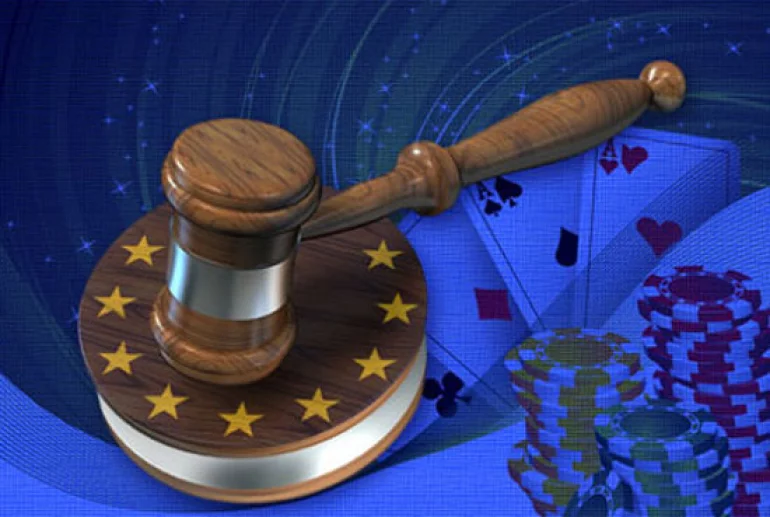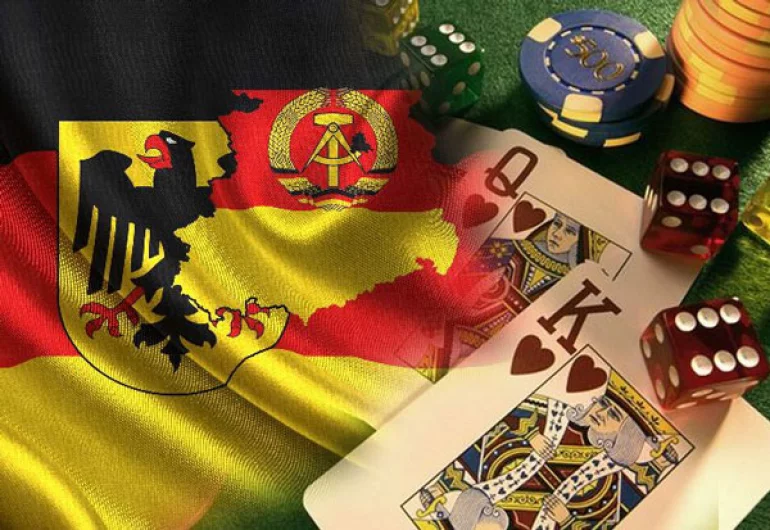
This article from Casinoz analyzes the legal regulations of the gambling business in countries of the European Union. It reviews regulations and practices that have allowed or prevented the E.U. countries from implementing the optimal legal and tax law for gambling. We hope our article will be interesting and valuable for those who tend to understand the gambling industry better.
Gambling Legislation in E.U.
Currently, the European Union is not unanimous in regulating the gambling business. Thus, common E.U. legislation on gambling does not exist. Member states independently regulate this market, leading to 28 national markets for the corresponding variations of gambling games.
All E.U. countries have gambling laws. The vast majority of countries are characterized by adopting national legislation that establishes a unified legal regime for gambling on the entire territory of the country. However, in some states (primarily federal), regional authorities are authorized to adopt local gambling-regulated laws on the corresponding territory.
- In Austria, casinos, lotteries, card games, and poker games are regulated at the federal level. In contrast, sports betting and slot machines outside casinos are regulated at the level of each federation member (land).
- In Spain, the gambling industry is regulated at both central (national legislation) and local levels. Each of the 17 autonomous regions adopted its legislation based on federal powers provided by the central government.
- In Italy, casinos are regulated locally.
- Germany has its peculiarities, too. The Interstate Treaty on Gambling, which is periodically updated, is valid nationally. Each country adopts its legislation in compliance with the conditions provided in this agreement. However, certain types of games of chance and some aspects of the gambling business are regulated by the federal laws of Germany.
There is no unity among E.U. countries regarding regulating various gambling types. Should it be limited to one or several laws?
- Some countries have a single legislative act covering all kinds of gambling. They are the U.K., the Netherlands, Poland, Romania, and Sweden.
- Others have decided to adopt branch laws. For example, there are the Gaming and Lotteries Act and the Totalisator Act in Ireland. In Italy, each sector of gambling services is regulated by a separate law, whereas in Lithuania, there are the Gaming Law and the Law on Lotteries.

One of the critical features of gambling in E.U. countries is the update of gambling-related legislation, which has been occurring for the last decade. Countries that have not yet implemented updated laws (for example, Ireland) will do this shortly.
The following factors are the main reasons for this pan-European phenomenon:
- The old legislation was inconvenient and inefficient for regulation of new types of legal activities in the gambling industry, which appeared as a result of the development of modern technologies, primarily gambling services on the Internet;
- The old legislation did not allow for the proper regulation of the market since it had undergone significant structural changes due to the rapid development of online gambling. In particular, old laws did not allow solving the problem of money outflow from the national market to foreign online operators;
- Due to the lawsuits of the European Commission that were supported by the Court of Justice of the European Union, the national legislation of several E.U. member states was found to violate some obligations regulated by the constituent treaties of the European Union. We are talking about the obligation to guarantee the fundamental freedoms of the E.U. internal market, such as the freedom of founding companies and providing services. Now, thanks to the decision of the Court of Justice of the European Union, there is a straightforward concept that gambling should be regulated primarily as a service. As a result, E.U. member states started opening national markets of gambling services for operators registered in other E.U. member states;
- The attitude of E.U. citizens towards gambling has become more favorable compared to previous decades. This can be explained by changes in the general culture of European societies and thanks to the development of the gambling industry under the concept of socially responsible games.
The efforts made notwithstanding, legislative regulation of gambling cannot be considered sufficiently effective. Independent research shows that over 50% of online gambling services are provided illegally in most E.U. countries.
Nonetheless, it is essential to note that, to a large extent, this situation is caused by tax legislation, which plays a crucial role in regulating the gambling market. This explains why it is common in the gambling industry to assess the market potential based on the comprehensive analysis of industry and tax legislation.
In the 2000s, many E.U. countries were forced to introduce liberal gambling market regulation under pressure from the abovementioned factors. Yet, at the same time, most imposed a significant tax burden on gambling. As experience shows, this leads to a reduction in the national regulated market and money outflow to the countries with favorable conditions for operators of online gambling services. Hence, it is necessary to mitigate tax pressure.
The definition of 'gambling' primarily determines the scope of gambling legislation. It also depends on the types of gambling allowed in the country and how they provide gambling services: offline gambling facilities or online services via the Internet.
Definition of Gambling in E.U. Legislation
Although the E.U. does not have common laws on gambling, there are separate E.U. directives containing the definition of "gambling services." They allow the definition of the term "gambling." The most recent definition is available in the Fourth EU Anti-Money Laundering Directive (E.U. 2015/849). According to it, gambling services are:
Services that provide making bets at your request with monetary units in games of chance, including skill-based games such as lotteries, casino games, poker games, and sports betting, which are available in particular locations, by any means at a distance, by electronic device or any other technology that facilitates communication.
Earlier Directives contained similar but more concise definitions of gambling. A definition reflected the essence of gambling: "making bets with monetary units in games of chance."
Games of Chance
The term "game of chance" is used to define any game where it is necessary to bet and is possible to win money or other prizes. It is important to note that the outcome depends entirely or primarily not on the gamblers' skills but on chance. This term comes from the French phrase "jeu de hasard," translated as 'game of chance.' The impact of randomness on the outcome of such games is reflected in many European languages. For example, the law on gambling in Poland is called "Ustawa o grach hazardowych." The same logic is observed in the German term "Glucksspielen," which is formed from the words "Gluck" (luck) and "spielen" (play).
However, in other languages, such as Russian, the term is unrelated to chance and randomness. It implies a particular mental state of excitement accompanying gamblers during gameplay. There is no connection with the concept of risk or chance, as in the initial French phrase 'jeu de hasard.'
Gambling-related legislation in the E.U. countries perfectly defines "gambling." Gambling is defined as an activity in which players are provided with the opportunity to obtain winnings. At the same time, the winnings entirely or to a certain extent depend on circumstances or unpredictable events. In addition, at least one of the players loses their bet.
Yet, all definitions of gambling include at least three signs:
- Making a bet with some value is necessary (games played 'for fun' are not supposed to be games of chance).
- Luck but not skills determine entirely or to a certain extent whether you win or lose;
- If a player wins, they receive rewards.
Nonetheless, some economic activities can formally have signs of gambling but don't belong to gambling. Thus, to avoid the application of the legislation on gambling to such activities, some norms are adopted to withdraw personal life insurance, certain types of state loans, prize draws for advertising purposes, as well as non-commercial games where a predetermined limited number of persons (for example, gambling that allows funding a specific charitable event) may participate, from the legislation on gambling.
Skill-Based Games
Experience shows that it is essential to define gambling and its variations as precisely and accurately as possible since any obscurities ultimately give rise to numerous disputes between the state, operators, and gamblers. In legal practice, one of the most common problems generated by the ambiguous definition of gambling is the qualification of so-called "games of skill."

A vital sign of a gambling game is the dependence of its outcome on coincidence or chance but not on the skills or knowledge of players. Yet, players' skills and expertise are still critical in some gambling types. Thus, certain countries' legislation distinguishes two types: games of chance (chance-based games) and games of skill (skill-based games). The latter include betting and certain types of card games (for example, poker). This distinction has legal consequences, which are of fundamental importance.
Is Poker a Game of Skill or a Game of Chance?
The Administrative Court in Muenster issued a decision No. 9 L 13/08 on April 3, 2008, in which it was mentioned that poker was a game of chance but not a game of skill and knowledge. Consequently, poker games were only allowed in state-owned casinos and could not be offered online.
At the same time, on July 15, 2014, the Financial Court of Muenster adopted a decision by which professional poker players should be liable to income tax on their payouts for victories. Thus, this decision created an ambiguous situation when tax authorities considered poker a game of skill since winnings are subject to income tax only in such cases. At the same time, the administrative and regulatory authorities treated poker as a game of chance, which allowed them to ban this game online.
It is interesting to mention the practice of U.S. courts in treating poker games.
The Court of Appeals in New York, in its decision on August 8, 2012, in the case 'United States v. Di Cristina' confirmed that poker is a game of skill rather than a game of chance. This means the U.S. federal gambling laws are not applicable in this case.
In particular, it was pointed out in the court decision that poker is a game of skill in which "an improvement of skills increase players' chances of winning and affects the individual deals, as well as series of deals" and "players who are poker experts use many abilities, including counting, knowledge of human psychology, as well as the ability for observation and manipulation."
This court decision allowed gambling industry representatives to hope that online poker would finally become legal. However, their hopes were in vain: in February 2014, the Supreme Court of the United States canceled this decision without examining the nature of poker, referring only to the direct poker ban following the laws of the State of New York.
It is interesting to note that disputes about the nature of certain types of gambling to avoid a ban date back to the Middle Ages. In medieval Europe, chess became a popular and widespread gambling game. In this regard, secular and ecclesiastical authorities began imposing bans on this game. In 1061, Cardinal Damiani forbade the Catholic clergy in his decree to play chess, which he considered to be "the invention of the devil" and an "indecent game." According to regulations, the Bishop of Florence was deprived of his rank for playing chess. In his defense, the bishop stated that chess required skills, so this game "does not look like other gambling games."
Gambling Taxation
The taxation system on gambling has a decisive influence on its development: an adequate taxation system facilitates legal gambling activities and prevents illicit ones, which is indispensable for the healthy growth of the gambling market. Thus, a favorable tax climate significantly increases budget revenues, except for a so-called snake-bites-its-tail paradox, when state budgets lose billions of gambling revenues due to harsh tax conditions.
What Is Good for Gambling: Turnover Tax or Income Tax?
Given that the gambling business has some features compared to other kinds of business activities, there are three types of tax regulation of gambling:
- General taxation when gambling is taxed under the rules standard for all types of business, including general income tax and VAT;
- Special taxation when gambling is taxed according to a separate taxation system tax on betting turnover and tax on gross gambling revenue;
- Combined taxation is when particular requirements are used along with the general taxation rules.
In the E.U. countries, the unique approach prevails, which means that the most common gambling taxation systems are taxes on stakes and gross gambling revenue. Tax on stakes or turnover tax is imposed on the entire amount of bets made by gamblers. In other words, it is set on the money gamblers spend, regardless of their results. As for the tax on gross gambling revenue (GGR), the basis for taxation is the difference between the amount of all bets made and the amount of all payouts made to gamblers for a given period, which is determined before deducting all other expenses of operators.

The E.U. countries have recently switched to taxes on gross gambling revenue because this approach to gambling taxation has proved to be the most relevant for this sphere. This is explained by the fact that the turnover tax does not consider some specific features of certain types of gambling.
On the one hand, the turnover tax is relevant for games with a fixed percentage of winnings/losses. We discuss lotteries and other games based on random number generators or betting where the operator's tax for organizing such activities is fixed. This is because the operator's income for such gambling depends only on the number of gamblers and the size of their investments. Thus, the operator's income is a share of the total turnover of gamblers' bets.
At the same time, turnover taxation is not relevant for other types of gambling (for example, betting). Why does this happen?
- The operator's income percentage from the total betting turnover is not fixed.
- Such gambling is low-margin. For example, the average margin for betting is 5-7%, whereas in lotteries, the margin value reaches 30-60%.
- The amount of bets made by gamblers usually does not match the money transferred to the operator's account since gamblers can use the funds they have won without withdrawing them from accounts for further betting. As a result, the betting turnover will significantly exceed the actual amount of funds transferred to the operator's performance.
Thus, the turnover taxation is commercially unprofitable for the abovementioned kinds of gambling since it does not allow making competitive offers on the low-margin market. It is also worth noting that marketing costs (bonuses, free chips, free spins, etc.), which are not considered winnings, are usually not included in the total costs when calculating gross gambling revenues.
In the E.U. countries, the situation with special taxes on gambling is as follows.
Gambling Taxation in France
France's experience can be considered a negative example of the use of turnover taxes on certain types of gambling. In 2010, France set high betting turnover tax rates when the licensing regime was introduced for online betting operators. As a result, licensed national operators lost the competition to illicit and offshore operators. The legal market dropped to 30% of the total market. Therefore, the scheduled budget revenues from the gambling industry were not received, and the French government publicly admitted in 2014 that the gambling taxation regime was inefficient.
Gambling Taxation in Bulgaria
Bulgaria can illustrate another example. When the government set a 15% gross gambling turnover tax, almost all national operators left the market because such a tax burden was commercially unbearable. A few years later, the government realized its mistake and introduced a 20% gross gambling revenue tax instead of the 15% turnover tax. As a result, most gambling operators returned to the Bulgarian market even though the tax rates were relatively high.
So, the development of the legal gambling business and its transformation into a reliable source of budget revenues requires a differentiated approach of using turnover taxes for games of chance (lottery, casinos, slot machines), which should correlate with the margin size.
Due to their low marginality, turnover taxes that don't exceed 4-5% can be applied to other kinds of gambling (in particular, sports betting, which occupies the largest share of the market of gambling services).
At the same time, considering the European experience, principles of common sense, and integrity, it is a more advanced approach to impose a tax on gross gambling revenue (GGR), whose rate should range from 10 to 20%.
According to experts and volumes of budget revenues, the E.U. countries, the UK, Malta, Belgium, Latvia, and Cyprus, can be examples of the effective tax policy in the gambling business.
Royal Scandinavian Casino v. Denmark
In September 2014, the E.U. Court's decision confirmed that Denmark's tax legislation concerning two-level gambling-related taxation complies with E.U. laws.
A taxation system of gross gambling revenue was introduced in Denmark. According to it, the activity of online gambling operators is taxed at 20%, while gambling operators providing offline (land-based) services have to pay 45%. In this regard, Royal Scandinavian Casino appealed to the Court of Justice of the European Union with the requirement to equalize the tax burden for online and offline operators, justifying their demands by the fact that such differentiation provides online operators with assistance from the state and violates the rules of fair and integral competition.
The Danish government argued that this difference in tax rates is because online operators have to compete with gambling operators from other countries. This two-level system provides equal conditions for online and offline operators. The Danish government's decision contributed to stimulating domestic online gambling operators.
As a result, the Court of Justice of the European Union supported the government of Denmark.
Conclusion
We have tried to analyze the key issues that arise while legalizing the gambling business and to identify fundamental principles that should be adhered to take into account the positive and negative experiences of the legal gambling regulations in E.U. countries. Analysis of experience in the legal regulations of the gambling industry shows that:
- In many European countries, gambling is a legal and budget-forming sector of the economy. The related activities are regulated at the legislative level.
- Any moratorium on gambling is ineffective for regulating such a sphere of human life, especially when such entertainment is available on the Internet and in neighboring countries.
- It is possible to protect the vulnerable part of society from the risks associated with gambling addiction only by providing relevant regulations when gambling is legal and when regulators and competitive pressure are present. Such conditions create real incentives for gambling to comply with the legislation requirements and principles of socially responsible games.
- The total ban on gambling is a way to strengthen the corruption component in the activities of law enforcement agencies and gambling shadowing with the subsequent activation of illicit activities controlled by organized crime.
- The prohibition of gambling negatively affects the development of other economic sectors, including tourism, horse breeding, professional sports, sports analytics, and sports media.
- Ban on gambling in any country will inevitably lead to money outflow from this state to countries where gambling is legal since gamblers meet their requirements directly in such countries or via the Internet.
Do not hesitate to share your opinion on the subject matter.












